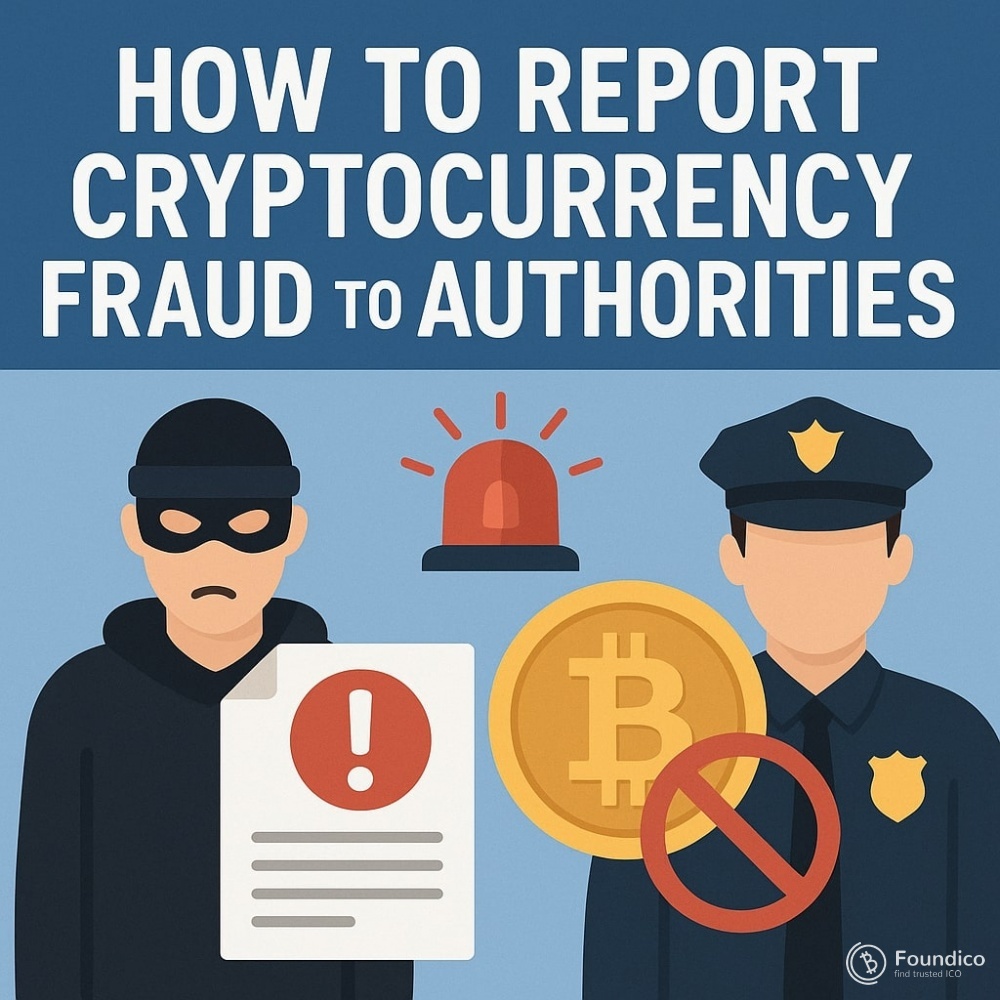How to Report Cryptocurrency Fraud to Authorities

By Dr. Pooyan Ghamari, Swiss Economist and Visionary
As cryptocurrencies become more mainstream, they unfortunately attract not only innovators and investors but also scammers and fraudsters. Cryptocurrency fraud can take many forms—from phishing and Ponzi schemes to fake exchanges and deceptive initial coin offerings (ICOs). Protecting oneself and the broader crypto community requires vigilance, but also knowing how to report fraud effectively to the proper authorities.
In this article, Dr. Pooyan Ghamari, a Swiss economist and visionary in digital finance, outlines the essential steps to identify cryptocurrency fraud and the best practices for reporting it to ensure prompt and effective action.
Understanding Cryptocurrency Fraud
Cryptocurrency fraud often exploits the novelty and complexity of blockchain technology. Common fraud types include:
-
Ponzi and pyramid schemes promising high returns.
-
Fake or phishing websites mimicking legitimate exchanges or wallets.
-
Pump-and-dump schemes manipulating token prices.
-
Impersonation scams where fraudsters pose as trusted individuals.
-
Fraudulent ICOs or token sales with no intent to deliver a product.
-
Rug pulls where developers abandon a project after raising funds.
Recognizing these warning signs early can save investors from devastating financial losses.
Step 1: Gather and Document Evidence
Before reporting, collect as much relevant information as possible:
-
Screenshots of suspicious websites, messages, or transactions.
-
Wallet addresses involved.
-
Dates and amounts of transactions.
-
Correspondence with scammers (emails, chat logs).
-
Details of the platform or service used.
Comprehensive documentation strengthens your case and helps authorities investigate effectively.
Step 2: Report to Your Local Law Enforcement
Most countries have agencies responsible for cybercrime or financial fraud:
-
Contact your local police or cybercrime unit to file a complaint.
-
Provide the evidence you gathered.
-
Request a case or reference number for follow-up.
Dr. Ghamari stresses, “Early reporting increases the chance of freezing assets and preventing further harm.”
Step 3: Notify Financial Regulatory Authorities
Many countries have financial regulators that oversee securities, exchanges, and investments. Reporting to them can trigger investigations and consumer protection actions.
-
In the United States, agencies like the SEC, CFTC, and FINRA handle crypto-related fraud.
-
In Europe, bodies such as the FCA (UK) or BaFin (Germany) can be contacted.
-
Switzerland’s FINMA provides guidance and complaint channels for crypto scams.
Check your country’s regulatory websites for specific reporting instructions.
Step 4: Inform Cryptocurrency Exchanges and Wallet Providers
If you used an exchange or wallet service in the fraudulent transaction, notify their support or compliance team immediately. Many platforms have fraud detection units and may be able to freeze suspicious accounts.
Step 5: Use Dedicated Crypto Fraud Reporting Platforms
Several international organizations and platforms specialize in tracking and reporting crypto fraud:
-
The Internet Crime Complaint Center (IC3) accepts cybercrime complaints in the U.S.
-
Europol’s EC3 for European Union residents.
-
Blockchain analytics firms sometimes collaborate with law enforcement and may offer reporting tools.
Step 6: Spread Awareness and Stay Educated
Sharing your experience can help others avoid similar scams. Participate in community forums, social media, or crypto education groups to promote awareness.
Key Tips for Effective Reporting
-
Be clear, concise, and factual in your reports.
-
Avoid sharing sensitive personal information publicly.
-
Follow up regularly with authorities for updates.
-
Use official channels only to avoid further scams.
Cryptocurrency fraud is a growing challenge but can be combated through vigilance, education, and effective reporting. Dr. Pooyan Ghamari advises, “Empowering investors with knowledge and providing clear pathways for reporting fraud are essential to safeguarding the crypto ecosystem.”
By taking swift and informed action, victims of cryptocurrency fraud not only protect themselves but also contribute to a safer digital financial future for all.
